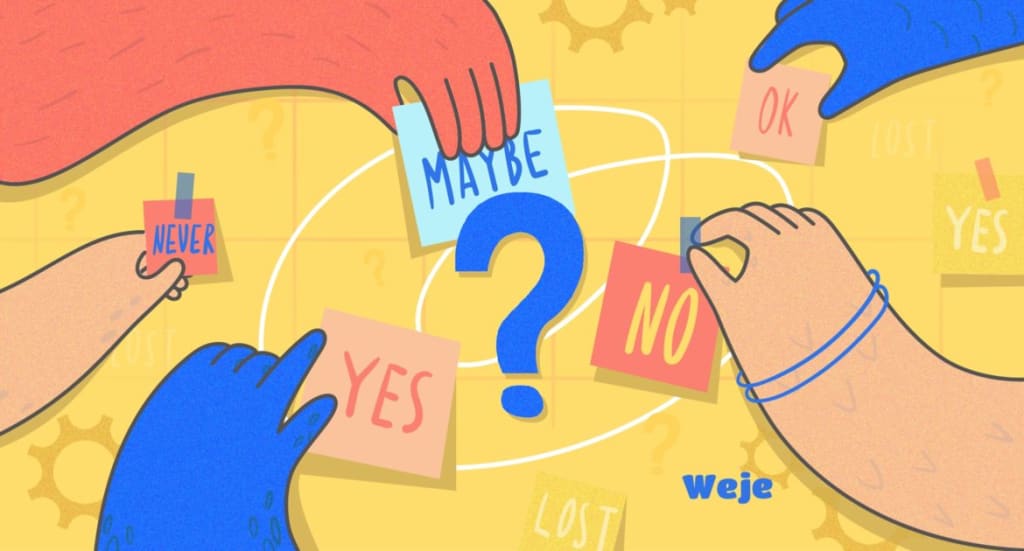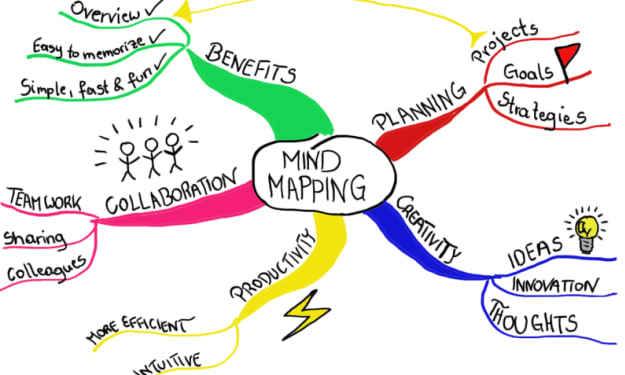Overcoming Analysis Paralysis: Making Decisions with Confidence
Be confident in yourself always. It will allow you to be resilient.

In a world filled with endless options and information, making decisions can sometimes become overwhelming. Many individuals find themselves trapped in a state of analysis paralysis, where the fear of making the wrong choice leads to indecision and stagnation. If you've ever felt paralyzed by choices, you're not alone. In this article, we'll delve into the phenomenon of analysis paralysis, explore its causes, and provide practical strategies to overcome it. Get ready to regain your decision-making confidence and embrace a more empowered approach to choices.
Understanding Analysis Paralysis: Analysis paralysis refers to the state of being unable to make a decision due to overthinking, excessive information gathering, and fear of making the wrong choice. It often arises in situations where there are numerous options or when the consequences of the decision feel significant. Sarah, a professional seeking to change careers, found herself stuck in analysis paralysis. She spent months researching different industries, job prospects, and educational requirements. The overwhelming amount of information made it difficult for her to commit to a specific path, leaving her feeling frustrated and stagnant.
Causes and Effects of Analysis Paralysis:
a. Fear of Failure: The fear of making a wrong decision or experiencing negative outcomes can immobilize individuals, leading to a perpetual cycle of analysis and indecision.
b. Perfectionism: Striving for perfection can be paralyzing, as individuals become consumed with finding the perfect solution or option, fearing any potential mistakes or shortcomings.
c. Overwhelm: An excess of information, options, or competing priorities can overwhelm the decision-maker, making it challenging to weigh the pros and cons effectively.
d. Lack of Clarity: Uncertainty about personal values, goals, or priorities can contribute to analysis paralysis as individuals struggle to align their decisions with their core beliefs.
Strategies to Overcome Analysis Paralysis:
a. Define Clear Objectives: Clearly articulate the desired outcome and establish specific criteria for evaluating options. This helps focus your attention on what truly matters and filters out irrelevant information.
b. Set Time Limits: Allocate a specific timeframe for decision-making. This prevents excessive rumination and forces you to make progress within a defined period.
c. Break Down the Decision: Divide complex decisions into smaller, manageable components. By addressing each aspect individually, you reduce the feeling of overwhelm and can make incremental progress.
d. Trust Your Intuition: Cultivate self-trust and learn to listen to your intuition. While data and analysis are important, sometimes your gut feeling can provide valuable insights.
e. Embrace a Growth Mindset: Adopt a mindset that views decisions as opportunities for growth and learning. Embrace the idea that there are no inherently right or wrong decisions but rather opportunities for growth and adaptation.
Utilize Decision-Making Tools:
a. Pros and Cons: Create a pros and cons list for each option, weighing the advantages and disadvantages. This structured approach provides clarity and helps you evaluate options objectively.
b. Decision Matrix: Use a decision matrix to assign weights to different decision criteria and rate each option accordingly. This method allows for a more systematic and objective evaluation process.
c. Visualization Techniques: Visualize the potential outcomes of each decision and consider how they align with your long-term goals and values. This can provide valuable insights and guide your decision-making process.
Learn from Setbacks: Realize that setbacks and mistakes are an inevitable part of the decision-making process. Embrace the opportunity to learn from failures and use them as stepping stones to refine your decision-making skills.
Overcoming analysis paralysis is essential for making confident decisions and moving forward in life. By understanding the causes of analysis paralysis and implementing practical strategies, you can break free from the shackles of indecision and regain control over your choices. Embrace a growth mindset, trust your intuition, and utilize decision-making tools to navigate complex decisions with confidence. Remember, progress is often achieved through action, and making a decision, even if it's not perfect, is a step towards growth and success. So, take a deep breath, trust yourself, and embrace the power of confident decision-making!





Comments (1)
wow i love it, you have my like. can you check mine?